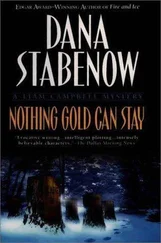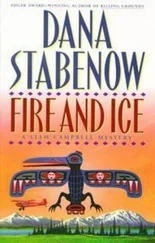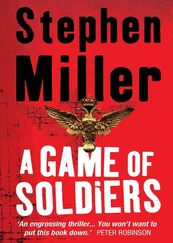Fang knew it anyway, but his bottom line had trebled and quadrupled since he’d brought the young Singaporean on board, so he let it slide. He’d never given a lot of consideration to retiring before this, but Noort-man’s genius was such that Fang was beginning to entertain thoughts of a positively middle-class nature, involving a luxury apartment in Shanghai, a plump, placid wife, and perhaps even sons to carry on his name. No, he had no intention-no immediate intention-of teaching the younger Noortman a sense of humility.
Having identified a likely target, Noortman would plot its course, consider and discard and eventually find the ideal point of interception (he enjoyed inventing business euphemisms for what was essentially high seas piracy), after which he turned this information over to Fang. After that it was simply a matter of placing the stolen cargo with the appropriate customer for the maximum profit, snapping his fingers at the law enforcement agencies of literally dozens of countries as he did so.
All this had seemed the height of adventure when he was twenty-five. Not to mention profoundly satisfying when he, dutiful son that he was, went home once a month to spend a weekend with his parents and indulged in a good, long inner chuckle when he sat down across the dinner table from his father, blind in one eye and deaf in one ear from the beating his son had given him. The elder Noortman might have been blind in both eyes for all the notice he gave his son on his irregular visits.
The younger Noortman also very much enjoyed bringing back black pearls from Tahiti, diamonds from South Africa, and emeralds from Colombia and laying them, metaphorically speaking, at his mother’s feet. That good, silent woman was appreciative if somewhat bewildered. She never did work up the courage to ask him where it all came from, and she never ceased to produce an endless line of eligible young women for his inspection and approval.
Even these trophy visits home were beginning to pall, though. So when Smith and Jones presented Noortman with this new, much more difficult, and altogether more dangerous challenge, he had embraced it with enthusiasm. First he looked at the area in question, working the phones and the Internet, monitoring ships and cargo moving in and out of the various ports. Many of the ports were so obliging as to have multiple remote cameras mounted over their docks, and it cost only a small portion of the sum set aside for operating expenses to hire a computer technician from a small, anonymous firm in Calcutta that specialized in such things to hack into the various operators’ computer systems to access them and feed the displays to Noortman’s computer.
He watched the traffic in and out of these ports for a month, looking up each ship’s AIS and searching their most recent ports of call, working up a history of each going back five years.
The automatic identification system was a praiseworthy attempt by the International Maritime Organization to have every ship on the seven seas broadcast an identification number to be picked up and monitored by satellite. This was a good idea for shippers, who could track their cargos around the world, and a great idea for pirates, because anyone with a fifty-dollar receiver from Radio Shack could also monitor them and identify the most lucrative targets.
He followed their current voyages via their AIS numbers through a satellite tracking firm that had proved reliable in the past. Most of this information would be discarded as he whittled down the list, but Noort-man was nothing if not thorough.
In the end, he had ten prospects, of which he eliminated seven on the grounds that their owners were too easily identifiable, if only to him. Of the three remaining, one ship looked very promising, registered out of Niue, an island nation in the South Pacific, one of whose very few viable industries was registering offshore firms wishing to avoid filing financial statements and paying taxes, owned through a Panamanian company with headquarters in Liberia and a parent company incorporated in the Bahamas controlled from Amsterdam and bankrolled out of Switzerland, where the trail ended abruptly in a Byzantine layer of partnerships and limited-liability corporations. He was so delighted with the artistry inherent in this industrial-strength obfuscation of lawful accountability that he promised himself he would trace the ship’s owner to the top of the food chain after the job was done.
It was at present leased to a Russian corporation. One of the attractions of this particular ship was that it was scheduled for maintenance next month in its home port. Since the Wall came down in 1989, pretty much everything in Russia could be had for the asking in exchange for currency of any solvent Western nation. Noortman chose a dock, contacted a local expediter, and bought a local customs agent. In all it took about an hour, and the total cost would be the lowest expense on this operation’s balance sheet.
The deck-top cargo took a little longer and cost a great deal more, but it would be loaded out of the same port. Pitiful, really, and no challenge at all for a man of his skill and experience.
The cargo from China required a little more finesse, although with the precipitous drop in the price of Chinese steel over the past two years he was able to negotiate a price that would not only give them enough ballast for a reasonably smooth ride but also ensure a more than reasonable profit on the other end.
Always assuming Mr. Smith and Mr. Jones had any interest in selling. Which he was fairly confident they did not. He arranged for lading and customs in Shanghai and then went to the market to buy fresh fish for the sashimi he would make that evening for the handsome young lawyer he hoped would become his next lover.
Seven weeks after they had met with the Koreans in Thailand, he called Fang and reported in.
There was a long silence. “What?” he said.
“I’m worried about this one,” Fang said.
“Why?”
“Perhaps it is our customer.”
Noortman was no fool, and he gave Fang’s concern due consideration. “They don’t leave witnesses, do you mean?”
“No, not that-less refuse for me to dispose of. No, what bothers me is that they are fanatics.”
Noortman shrugged. “They are customers. They pay us, we provide a service.”
“I don’t trust people with causes. They are not rational, and therefore they are dangerously unpredictable.”
“They have given us a very large sum of money. Without haggling over the price. This argues a very strong commitment.”
“That may be what worries me most,” Fang said.
Noortman laughed. Fang didn’t. “What?” Noortman said.
“How do we get off?”
“Mr. Smith said he has made arrangements.”
“You are very confident for someone who won’t be along for the ride. I’d like a few more details.”
“Mr. Smith seems to be very security conscious.”
“He certainly does,” Fang said.
When Noortman’s phone rang next it was Smith. Noortman, mindful of the respect due an employer with a bankroll the size of Smith’s, sat up straight and gave a sober precis of his progress to date.
“That is acceptable,” Smith said. He stayed on the line.
“There was something else?” Noortman said cautiously.
“Yes. I have another task for you. You alone.”
Translated, this meant Fang was not to be told. After a moment, Noortman said, “What is this task?”
When Smith finished speaking, Noortman was silent.
“Well?” Smith said. “Are we agreed?”
Fang would show no mercy if he knew that Noortman was cutting deals behind his back. Still, Noortman wasn’t a fool, he knew that Fang was thinking of retiring. Even if Fang survived this trip, doubtful now that he knew of this second of Smith’s requirements, Noortman would very probably be looking for employment elsewhere.
Читать дальше












